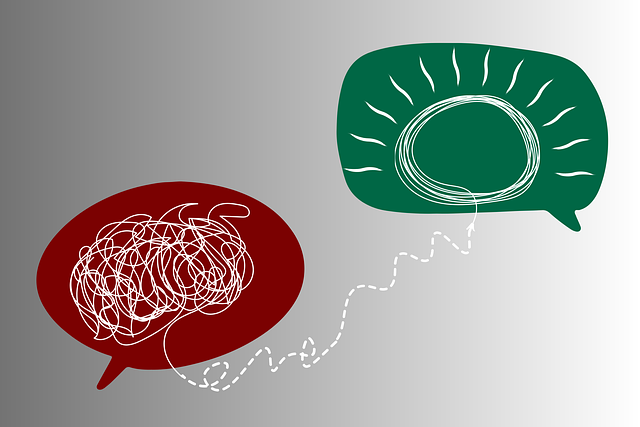Risk assessment is a critical aspect of Northglenn Obsessive Compulsive Disorder (OCD) therapy, focusing on patient history, symptoms, and environmental factors to identify and mitigate potential hazards. A comprehensive risk management plan for therapists emphasizes mental wellness through tailored stress management, self-care practices, and crisis protocols. By prioritizing mental health in the workplace, therapists can maintain peak performance while creating a safe environment for clients, leading to improved outcomes and fostering open communication. Personalized disorder-specific strategies combined with empathetic therapy and community engagement are key to providing safe and effective OCD care.
Mental health professionals are constantly navigating complex landscapes of risk assessment, management, and response. Effective risk management planning is crucial for ensuring safe and therapeutic environments, especially as disorders like Northglenn Obsessive Compulsive Disorder (OCD) therapy demand meticulous attention. This article delves into the essentials of risk assessment in mental health practice, provides a step-by-step guide to developing robust risk management plans, and explores strategies tailored for mitigating and responding to risks unique to therapeutic settings.
- Understanding Risk Assessment in Mental Health Practice
- Developing a Comprehensive Risk Management Plan
- Strategies for Mitigating and Responding to Risks in Therapy Sessions
Understanding Risk Assessment in Mental Health Practice

Risk assessment is a cornerstone in mental health practice, enabling professionals to identify and mitigate potential hazards that may impact patient well-being. It involves a comprehensive evaluation of various factors, including a patient’s history, current symptoms, and environmental influences. For instance, in Northglenn Obsessive Compulsive Disorder (OCD) therapy, risk assessment becomes crucial in tailoring treatments to individual needs. By meticulously analyzing these elements, mental health professionals can predict and address risks effectively, ensuring safe and successful therapeutic outcomes.
This process involves not just identifying vulnerabilities but also strengthening patient resilience through confidence-boosting strategies and the development of robust self-care routines. It’s about creating a proactive approach that goes beyond reactive crisis management, fostering an environment where patients feel empowered to manage their mental health proactively.
Developing a Comprehensive Risk Management Plan

In developing a comprehensive risk management plan for mental health professionals, especially those catering to Northglenn Obsessive Compulsive Disorder (OCD) therapy, it’s crucial to integrate strategies that address both the practitioner’s and client’s mental wellness. This involves creating a robust framework that identifies potential risks, implements preventive measures, and offers clear protocols for crisis management. A well-rounded plan should incorporate tailored stress management techniques, regular self-care practices, and even Mental Wellness Coaching Programs Development to ensure resilience against burn-out and enhanced job satisfaction.
By prioritizing mental wellness within the workplace, therapists can maintain optimal performance while fostering a safe environment for their clients. This proactive approach not only improves patient outcomes but also cultivates a culture of open communication, where professionals feel empowered to discuss challenges and seek support when needed, thereby reducing the risks associated with unaddressed mental health concerns in Northglenn OCD therapy settings.
Strategies for Mitigating and Responding to Risks in Therapy Sessions

Mental health professionals play a crucial role in helping individuals navigate their mental health journeys, but this work isn’t without risks. Effective risk management planning is essential to ensure safe and supportive therapy sessions for both clients and practitioners. Strategies for mitigating risks should be tailored to address specific challenges, like Northglenn Obsessive Compulsive Disorder (OCD) Therapy, where triggers can vary widely. Building strong therapeutic alliances and fostering empathy are foundational strategies. Mental health professionals can enhance these relationships through active listening, validating client experiences, and demonstrating genuine concern, all of which help clients feel understood and supported.
Additionally, implementing community outreach programs and developing public awareness campaigns can mitigate risks by broadening understanding of mental health issues. Educating the public about conditions like OCD normalizes conversations, reduces stigma, and encourages individuals to seek help earlier. Such initiatives empower clients by fostering a supportive environment both inside and outside the therapy setting. This multifaceted approach—combining strong therapeutic relationships, tailored strategies for specific disorders, and community engagement—is key to effective risk management in mental health care.
Mental health professionals play a crucial role in helping individuals navigate complex emotional landscapes, but they also face unique risks. By integrating robust risk assessment and management strategies, therapists can create safer, more supportive environments. A well-structured plan, like the one outlined in this article, encompassing comprehensive risk assessments, proactive mitigation tactics, and tailored response protocols, equips professionals to handle various challenges, including symptoms of Northglenn Obsessive Compulsive Disorder (OCD). Through continuous evaluation and adaptation, therapists can ensure their practices remain secure, effective, and resilient.














